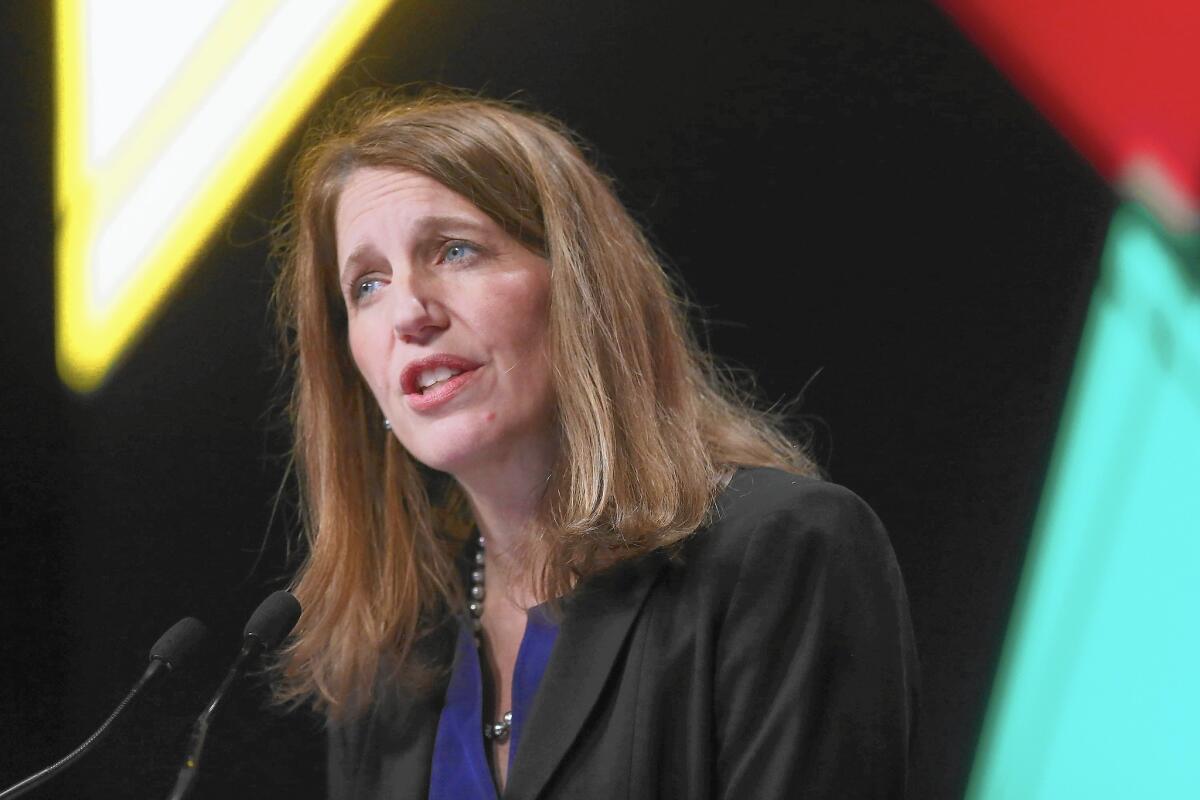Medicare to transform how it pays doctors and hospitals

Reporting from washington â The Obama administration outlined ambitious new goals Monday to transform over the next four years the way that the gargantuan Medicare program pays doctors and hospitals, rewarding providers that achieve better outcomes for patients rather than those that just do more.
The move away from so-called fee-for-service medicine is a central, if little recognized, goal of the Affordable Care Act, which the president signed five years ago.
Most experts believe that this shift is crucial to improving the quality of care that patients receive, while also restraining costs at a time when millions of baby boomers will be entering the nationâs primary insurance program for the elderly.
Under the goals announced Monday, Medicare will make 30% of its direct payments to doctors, hospitals and other providers through alternative payment models by next year, up from nearly nothing four years ago.
These models include bonuses for doctors to coordinate patientsâ care and programs that set a budget for patient care and reward physician practices, hospitals and others who deliver the care under budget while achieving good outcomes for patients.
By 2018, half of Medicareâs direct payments to providers should be through such models, according to the federal Department of Health and Human Services.
In 2014, about 20% of direct payments in the fee-for-service Medicare system are made through alternative models, the agency reported.
âTodayâs announcement is about improving the quality of care we receive when we are sick, while at the same time spending our healthcare dollars more wisely,â Health and Human Services Secretary Sylvia Mathews Burwell said.
The Obama administration did not provide a detailed plan for how this rapid transition would be accomplished. But many of the changes are already underway, spurred in part by the federal health law, which set up experiments designed to change the way that Medicare pays medical providers. Several of these experiments have already yielded substantial savings while improving the quality of care.
Similar changes are underway in the private sector, where commercial insurers and major employers are also investing in new payment models.
Administration officials said Monday that expansion of the existing Medicare programs probably will be sufficient to meet the new targets. They also plan to develop new programs and increase coordination with private insurers and state governments, which insure millions of the nationâs poorest residents through their Medicaid programs.
The new goals were broadly hailed by consumer advocates, leading medical providers and insurance industry officials.
âTodayâs announcement will be remembered as a pivotal and transformative moment in making our healthcare system more patient- and family-centered,â said Debra L. Ness, president of the National Partnership for Women & Families, a leading consumer advocacy group.
Dr. Douglas E. Henley, chief executive of the American Academy of Family Physicians, also applauded the goals, calling Monday a âbless-your-heart day.â
Medicare will spend more than $600 billion this year to provide medical insurance to some 50 million elderly and disabled Americans.
About a quarter of Medicare beneficiaries receive insurance through a private Medicare Advantage plan; some of these plans already use alternative payment methods designed to reward better-performing doctors and hospitals.
But the majority of Medicare beneficiaries are still in what is called the fee-for-service system, a model that reimburses doctors and hospitals based on the number of patient visits, tests and procedures they bill for.
This system has long been criticized for encouraging doctors and others to simply do more, rather than rewarding medical providers who prevent complications and help their patients recover more quickly so they donât need further care.
Twitter: @noamlevey
More to Read
Inside the business of entertainment
The Wide Shot brings you news, analysis and insights on everything from streaming wars to production â and what it all means for the future.
You may occasionally receive promotional content from the Los Angeles Times.











